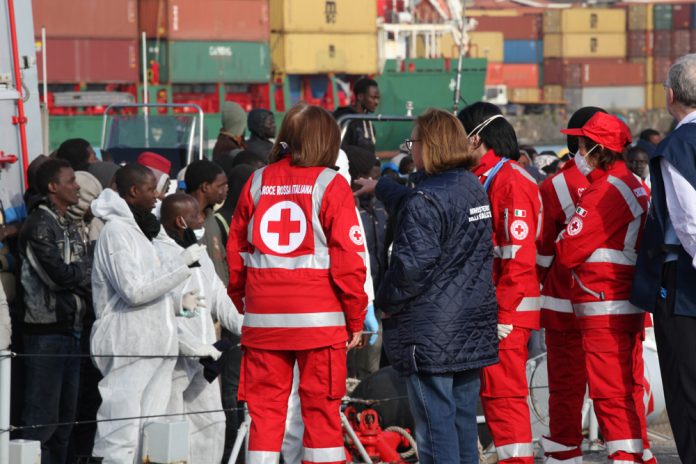European Commission officials announced on July 9 that Italy’s request to modify the terms of a Mediterranean naval mission focused on disrupting human trafficking will be discussed.
Operation Sophia, an EU military operation, is in Italy’s crosshairs after one of its vessels docked in Sicily with 106 migrants aboard over the weekend.
As reported by The Associated Press (AP), Italy’s hard-line anti-migrant interior minister, Matteo Salvini, used the occasion to announce that Italy wanted to block participating vessels from docking going forward, as he has done with the ships of aid groups that rescue migrants.
An EU Commission spokeswoman, Natasha Bertaud, said that Operation Sophia’s operations are under strategic review, and that “this will be the opportunity to discuss the Italian position.” The mission’s current mandate expires at the end of the year, and has been modified in the past.
According to Sophia’s operational mandate, the coast guard coordinating the rescue designates the port, Bertaud said. In the case of the weekend rescue, Malta’s coast guard received first word of a migrant boat in distress but then handed off coordination of the rescue itself to Italy — as is often the case — and the Italians then instructed the Irish vessel Samuel Beckett to come into Messina to disembark.
Meanwhile, the defence ministry, which is responsible for Italy’s participation in Operation Sophia, made clear Salvini had no business getting involved in one of its naval missions.
Also, Italy’s Foreign Minister Enzo Moavero Milanesi told a press conference on July 9 that his country’s main goal was to guarantee fundamental human rights for migrants in asylum-processing centres that EU members want set up in Africa.
“We can’t forget that behind the generic noun ‘migrants’ we are talking about real people who are seeking a better future,” he said. “So, it is very important that wherever these people will be gathered, either in Europe or outside Europe, the conditions must be absolutely dignified and the fundamental rights have to be guaranteed.”

